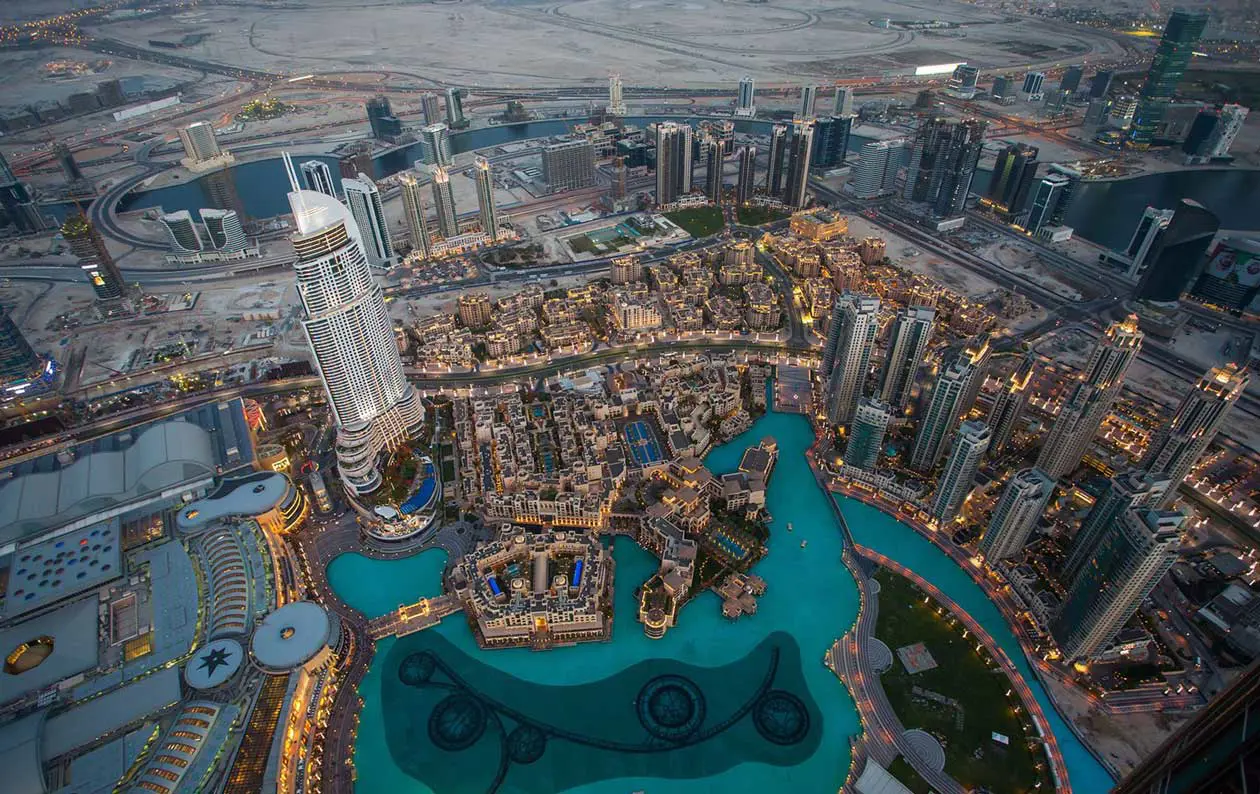23 November 2023
Emirates A380 100% SAF demonstration flight
First time drop-in SAF is used on an A380 with full compatibility across the aircraft’s existing system
Emirates has become the world’s first airline to operate an A380 demonstration flight using 100% Sustainable Aviation Fuel (SAF). The flight, proudly commanded by Captain Khalid Binsultan and Captain Philippe Lombet, took off from Dubai International Airport (DXB) with one of four engines powered on 100% SAF, helping demonstrate its potential as a drop-in replacement that matches jet fuel’s technical and chemical requirements, while being a more sustainable alternative. SAF can reduce carbon emissions by up to 85%* over the fuel’s life cycle when compared to conventional jet fuel.
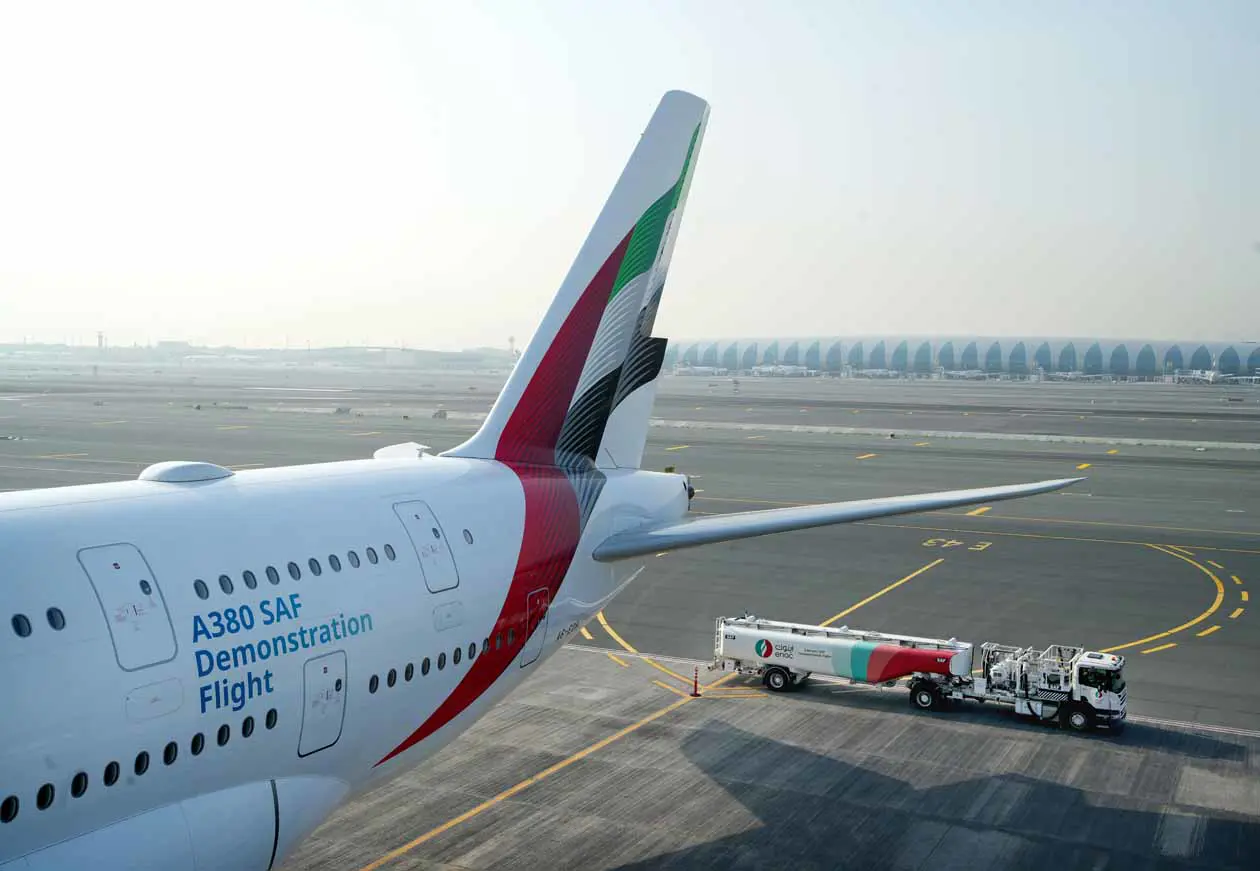
Copyright © Emirates Airlines / The Emirates Group
Demonstration flights like the one conducted today pave the way for future standardisation, qualification and adoption for 100% SAF flying, as governments adopt broader strategies to support the production and scale up of SAF. The A380 demonstration flight underlines the performance and compatibility of SAF, making it a safe and reliable fuel source, and contributes to the growing body of research carried out by the industry to evaluate the beneficial effects of 100% SAF on aircraft performance. SAF is currently capped at a 50% blend limit in engines for commercial flights.
Copyright © Emirates Airlines / The Emirates Group
The Emirates A380 demonstration flight comes as the aviation industry, international organisations, regulatory bodies and high-level officials driving policy-related decisions converge in Dubai for the Third International Civil Aviation Organization (ICAO) Conference on Aviation and Alternative Fuels (CAAF/3). Dedicated collaborators from Airbus, Engine Alliance, Pratt & Whitney, Neste, Virent and ENOC have been working on the testing, technical assessments and data analysis for flight.
The 100% drop-in SAF used on flight includes renewable aromatics and closely mimics the characteristics of conventional jet fuel. This is the first time that drop-in SAF has been used on an A380 aircraft, with the expectation of full compatibility across the aircraft’s existing systems. The flight carried four tonnes of SAF, comprised of HEFA-SPK provided by Neste (hydro processed esters and fatty acids synthetic paraffinic kerosene) and HDO-SAK from Virent (hydro deoxygenated synthetic aromatic kerosene). ENOC helped to secure the neat SAF comprised of HEFA-SPK, and blended it with Sustainable Aviation Kerosene (SAK) at its facility in Dubai International Airport ahead of the demonstration, and also carried out into-plane services.
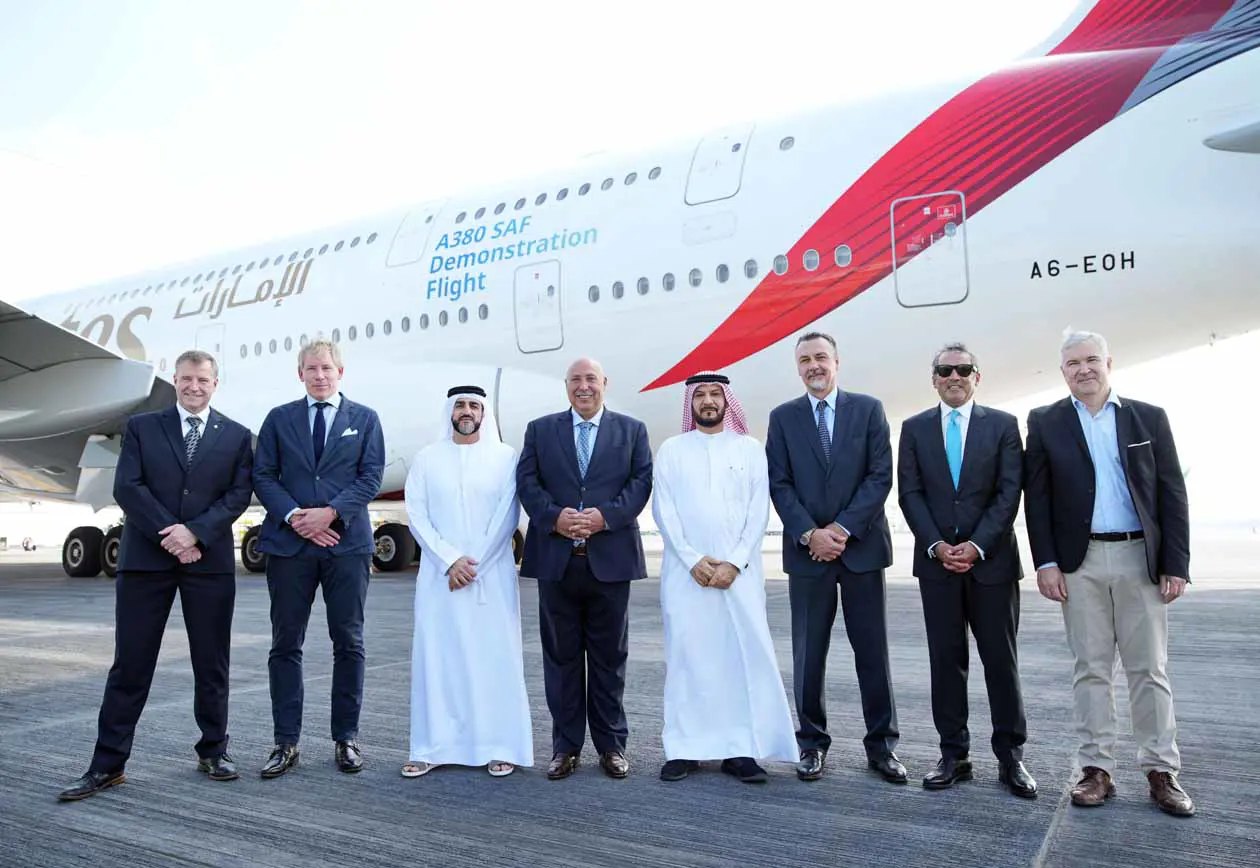
From left to right: Edgar Steenwinkel, Senior vice President Technology at Virent; Klaas Pel, Global Head of Aviation Regulation, Neste; Farid Bastaki, Director, ENOC Aviation; Mikail Houari, President Africa and Middle East at Airbus; Adel Al Redha, Chief Operating Officer, Emirates Airline; Aziz Koleilat, Vice President of Global Sales and Marketing for the Middle East, Eastern Europe, and Turkey at GE Aerospace; Ahmed Safa, Divisional Senior Vice President Emirates Engineering; Alexandre Jay, A380 Chief Engineer, Airbus. Copyright © Ufficio Stampa Emirates Airlines / The Emirates Group
The 100% SAF was used in one Engine Alliance GP7200 engine, while conventional jet fuel was used in the other three engines. The PW980 auxiliary power unit (APU) from Pratt & Whitney Canada also ran on 100% SAF.
Last week, robust engine testing for one A380 Engine Alliance GP7200 engine using 100% SAF was carried out, with the objective of validating the engine’s capability to run on the specially blended 100% drop-in SAF without affecting its performance or requiring any modifications. Ground engine testing took place at the state-of-the-art Emirates Engineering Centre in Dubai.
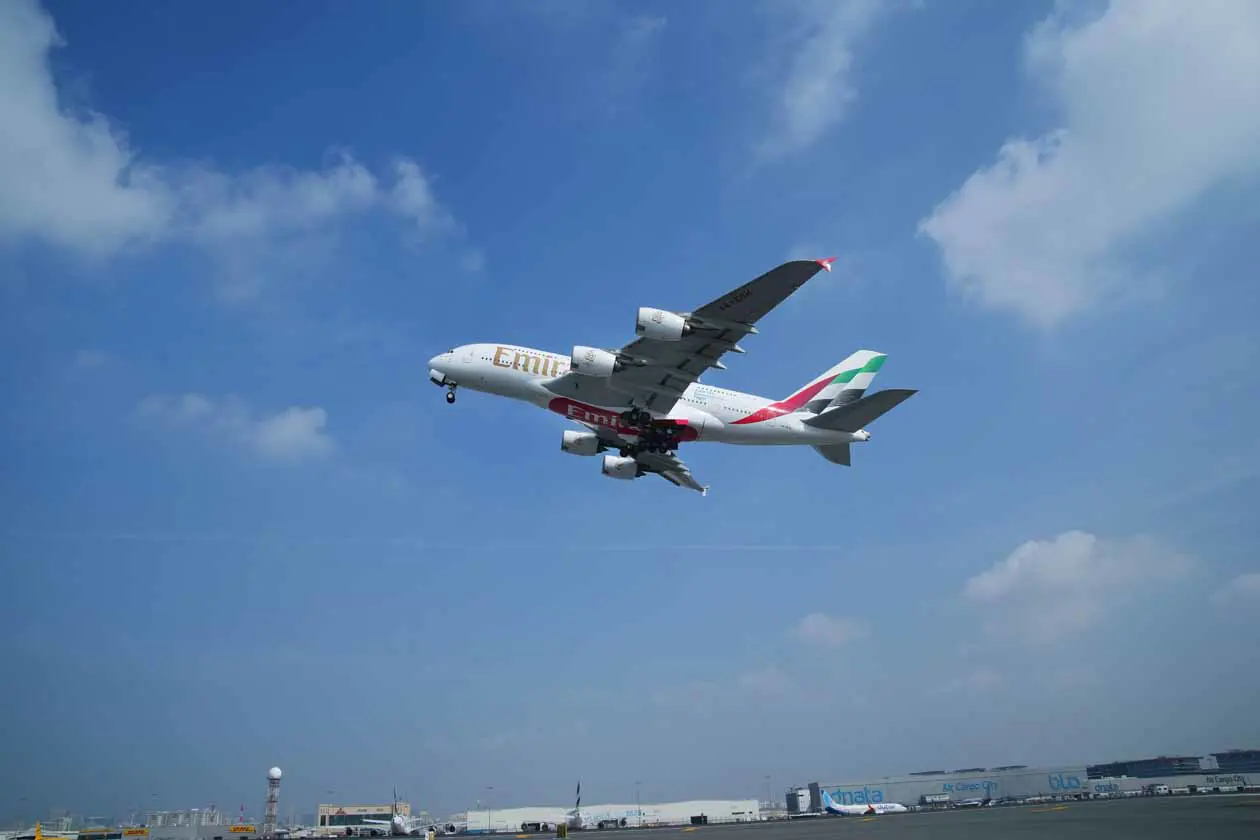
Copyright © Ufficio Stampa Emirates Airlines / The Emirates Group
Earlier this year, Emirates successfully completed the first 100% SAF-powered demonstration flight in the region on a GE90-powered Boeing 777-300ER. Last month, the first Emirates flights operating with SAF provided by Shell Aviation took off from Dubai International Airport (DXB). Shell supplied 315,000 gallons of blended SAF for use at the airline’s hub in Dubai. The airline recently expanded its partnership with Neste for the supply of over 3 million gallons of blended SAF in 2024 and 2025 for flights departing from Amsterdam (Schiphol airport) and Singapore (Changi airport). Emirates currently uplifts SAF in Norway and France and the airline continues to seek opportunities to use SAF at various airports as supply becomes available.
Emirates participates in a range of industry and UAE government working groups, along with ongoing stakeholder engagements to help scale the production and supply of SAF. Last year, together with the UAE GCAA, the airline contributed to the development of the UAE’s power-to-liquid (PtL) fuels roadmap, driven by the UAE Ministry of Energy and Infrastructure and the World Economic Forum, and has been an active participant in the UAE’s National Sustainable Aviation Fuel Roadmap launched in January 2023 by the Ministry of Energy and Infrastructure and GCAA.
*Calculated with established life cycle assessment (LCA) methodologies, such as CORSIA methodology.
Edited by editorial staff, Avion Tourism Magazine
Text source, video, photos: Copyright © Emirates Airlines Press / The Emirates Group
Dubai Photo: Copyright © Sisterscom.com, Shutterstock
What to see in Dubai
Dubai. Photo: Copyright © Sisterscom.com, Shutterstock
Hotels in Dubai of the "Travel Sustainable" program
You might be interested in
Sustainability
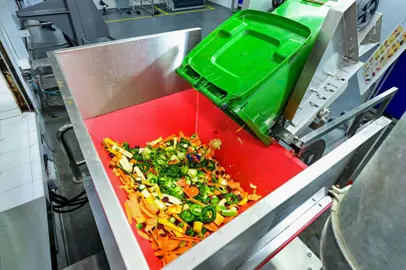
Sustainable Mobility
On board with less waste: Emirates catering becomes more sustainable
In Dubai, one of the world's largest biodigesters reduces waste and CO₂, improving the environmental impact of meals served in flight
Sustainability
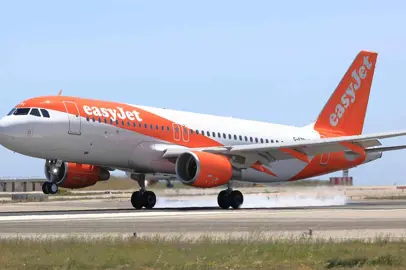
Sustainable Mobility
easyJet focuses on efficiency and sustainability
Sharklet on Airbus A320ceo by summer 2026 to reduce fuel consumption and emissions: the aircraft involved operate at major bases including Berlin, Lisbon, London Gatwick and Milan Malpensa
Sustainability

Sustainable Mobility
Emirates' sustainable amenity kits
New designs for pouches made from bio materials, illustrations of endangered species, and Aveda products in the new Premium Economy and Economy amenity kits for long-haul flights

